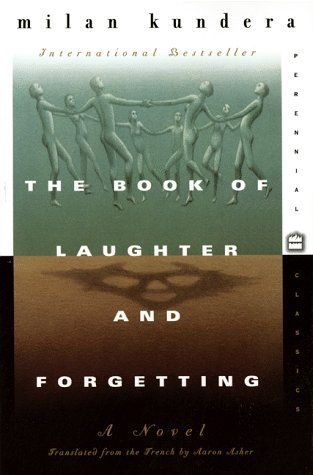
The Book of Laughter and Forgetting A Novel
Rich in its stories, characters, and imaginative range, The Book of Laughter and Forgetting is the novel that brought Milan Kundera his first big international success in the late 1970s. Like all his work, it is valuable for far more than its historical implications. In seven wonderfully integrated parts, different aspects of human existence are magnified and reduced, reordered and emphasized, newly examined, analyzed, and experienced.
Reviews
Maureen@bluereen
Lila R E@lilaklara
Annie Millman@anniemillman
Hannah Sween@hannahsween
Sarah Escorsa@shrimpy
M M@expandingbookshelves
sofi@keats
Heather Margaret@heatherdarling
daniela@ooorangemoon
Emma Bose@emmashanti
Abigail Collins@abzz
so@softer
Rifqaiza Pravangesta@rifqaiza
A kabel @me0wme0w
Andrea Guadalupe@lasantalupita
Aidan@aidan
Jason Marder@jason_marder
Dr Seth Jones@sdjones
Claudiu@claudiu
Arman Keyvanskhou@armankey
Ioana Kardos@ioanakardos
Natalie Taylor @natalie2504
Kristina@abeatreader
Natalie Taylor@natalietay